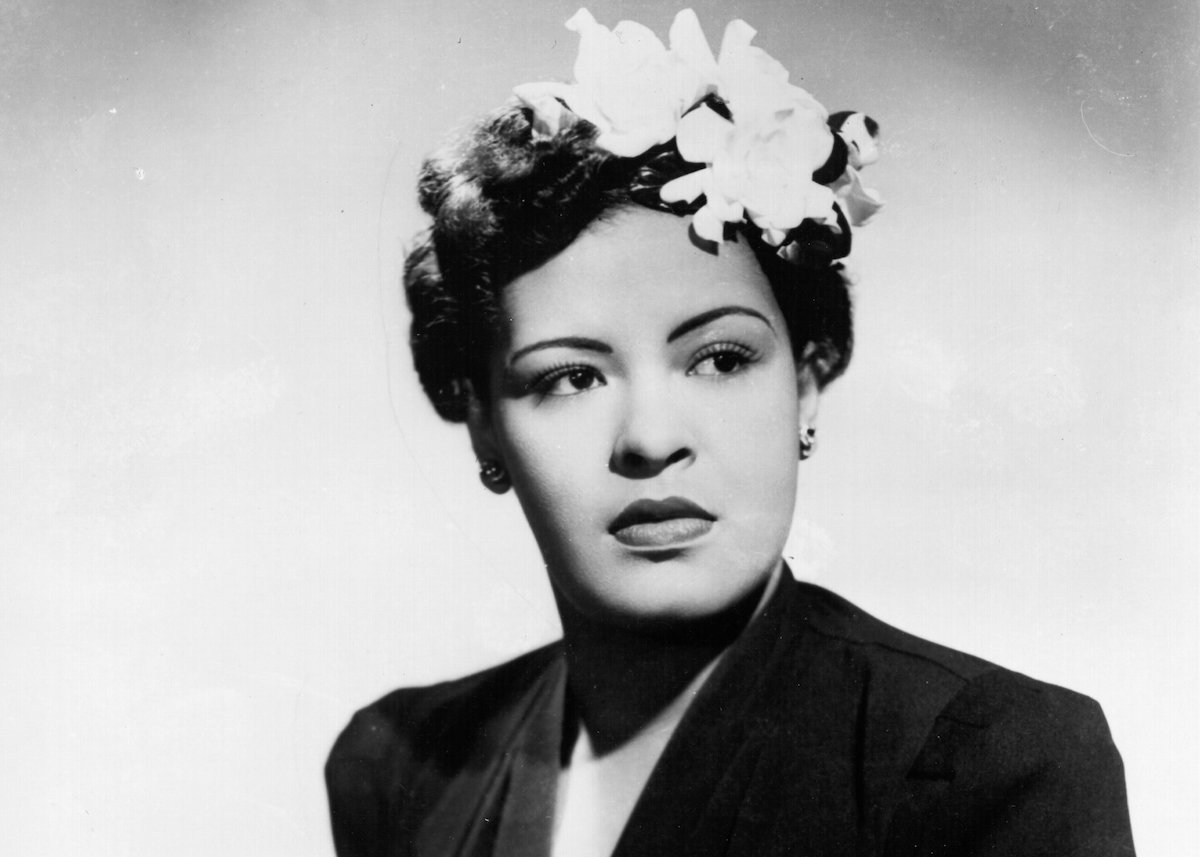Billie Holiday’s ‘Strange Fruit’ Lyrics Made the Government Hunt Her Down for 20 Years
Andra Day’s performance in The United States vs. Billie Holiday won her a Golden Globe and got her an Oscar nomination. She plays the late jazz singer Billie Holiday in the film, which is about her infamous song, “Strange Fruit” and the U.S. government’s determination to stop her from singing it.
The history of the song is a tragic story of racism and government oppression, and it all leads up to Holiday’s death. But it was also named the Song of the Century. To understand why it was so controversial to some and so powerful to others, you have to understand the meaning of Holiday’s “Strange Fruit” lyrics.

What is the story behind ‘Strange Fruit’?
“Strange Fruit” is about lynchings in America during the Jim Crow era. As shown in The United States vs. Billie Holiday, the “All of Me” singer was horrified by the hate crimes committed against Black men and women that went without consequences. “Strange Fruit” was her way of protesting the brutality.
Holiday performed “Strange Fruit” for the first time in 193, and her fans frequently requested her to sing it over the years. It wasn’t only Black Americans wanting to hear it. It intrigued white audiences, as well. While its heavy meaning was lost on many of them, the powerful message was seen as a threat by the Federal Bureau of Narcotics.
During this same time period, the narcotics bureau was fighting a “war on drugs.” Black people were disproportionately arrested because of this. Federal Bureau of Narcotics Commissioner Harry Anslinger used Holiday’s heroin addiction as justification to arrest her. But it was mostly a tactic to stop her from performing the song.
The narcotics bureau spent two decades hunting her down and trying to send her to prison. They succeeded at one point. She spent over a year in jail, and it was all because they didn’t want a Black woman inspiring people to fight against lynchings and the racism that triggered them.
The ‘Strange Fruit’ lyrics that angered the federal government
The song itself was originally a poem and is quite short, having only three verses. It’s stretched out over 3 minutes, adding to the harrowing picture it paints. The poem was written by Abel Meeropol under the pseudonym Lewis Allan. Meeropol was a school teacher in New York City who believed in communism. According to NPR, he wrote the poem after seeing a photo of a lynching.
He put the poem to music and performed it at a nightclub, and the song eventually made its way to Holiday. Meeropol was investigated because of his connection to the song and his political beliefs. He had to testify that the American Communist Party didn’t pay him to write the lyrics.
In the lyrics, the “strange fruit” is a metaphor for lynching. As Holiday sings in the first verse:
Southern trees bear a strange fruit
Blood on the leaves and blood at the root
Black bodies swingin’ in the Southern breeze
Strange fruit hangin’ from the poplar trees
The imagery gets darker in the second verse:
Pastoral scene of the gallant South
The bulgin’ eyes and the twisted mouth
Scent of magnolia sweet and fresh
Then the sudden smell of burnin’ flesh
The song ends on a sorrowful note, both lyrically and melodically. Holiday sings:
Here is a fruit for the crows to pluck
For the rain to gather
For the wind to suck
For the sun to rot
For the tree to drop
Here is a strange and bitter crop
Day covered the song in 2017 and recorded it again for the Lee Daniels film.
How did Billie Holiday die?
Holiday’s continued protest via “Strange Fruit” angered Anslinger to no end. His determination to imprison and silence her extended all the way to her death bed.
After decades of drug and alcohol abuse, Holiday’s liver went into cirrhosis. She checked herself into a hospital for treatment, and Anslinger sent his team after her. They handcuffed her feet to the bed frame and wouldn’t allow the medical staff to give her treatment. She died in the hospital on July 17, 1959, still handcuffed to the bed.
Despite the government’s fury surrounding the song and its determination to erase it from history, Time Magazine named “Strange Fruit” the “Song of the Century” in 1999.


